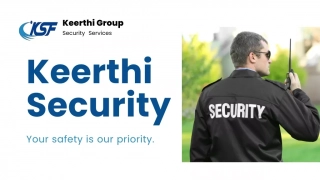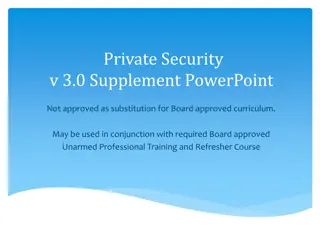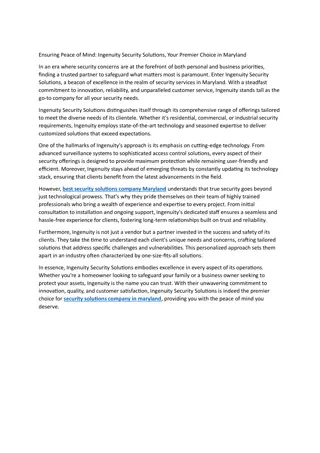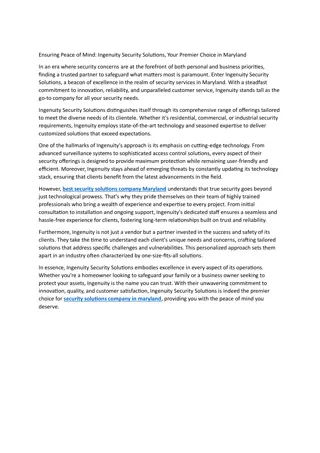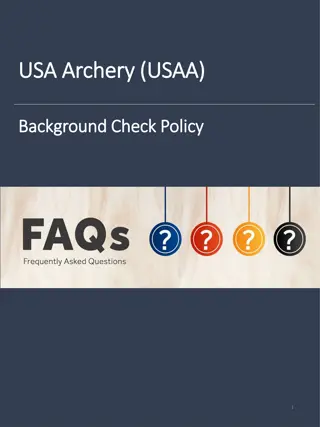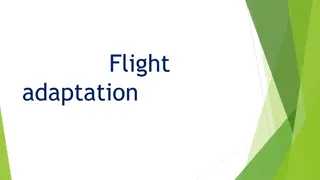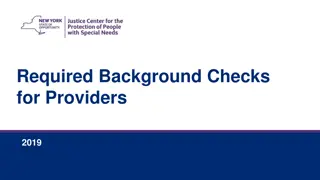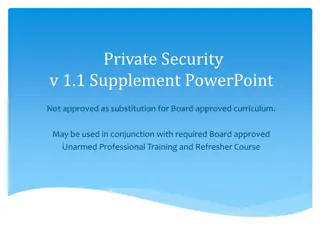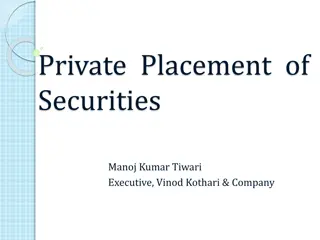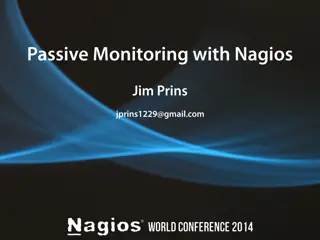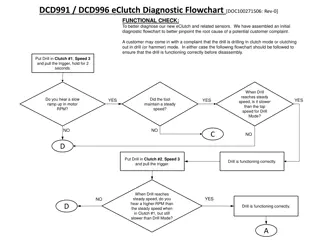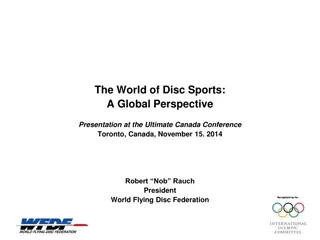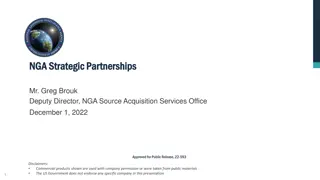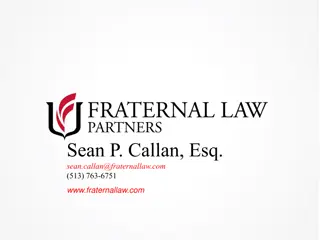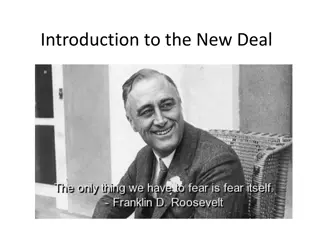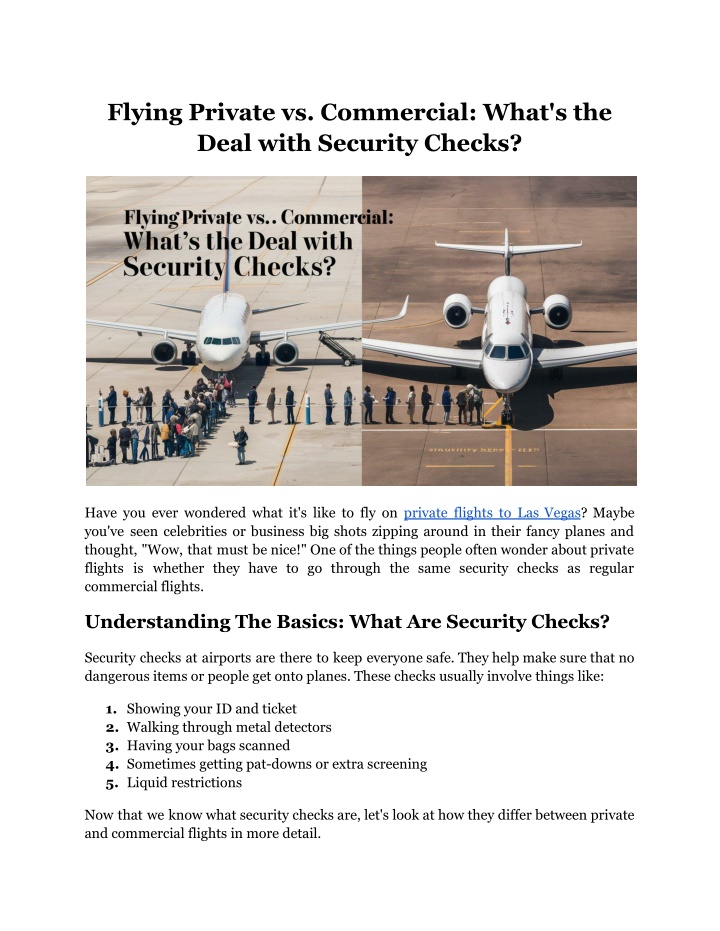
Flying Private vs. Commercial: What's the Deal with Security Checks?
Discover the differences in security checks between private and commercial flights. Find out what to expect on your next journey.n
Download Presentation

Please find below an Image/Link to download the presentation.
The content on the website is provided AS IS for your information and personal use only. It may not be sold, licensed, or shared on other websites without obtaining consent from the author. If you encounter any issues during the download, it is possible that the publisher has removed the file from their server.
You are allowed to download the files provided on this website for personal or commercial use, subject to the condition that they are used lawfully. All files are the property of their respective owners.
The content on the website is provided AS IS for your information and personal use only. It may not be sold, licensed, or shared on other websites without obtaining consent from the author.
E N D
Presentation Transcript
Flying Private vs. Commercial: What's the Deal with Security Checks? Have you ever wondered what it's like to fly on private flights to Las Vegas? Maybe you've seen celebrities or business big shots zipping around in their fancy planes and thought, "Wow, that must be nice!" One of the things people often wonder about private flights is whether they have to go through the same security checks as regular commercial flights. Understanding The Basics: What Are Security Checks? Security checks at airports are there to keep everyone safe. They help make sure that no dangerous items or people get onto planes. These checks usually involve things like: 1. Showing your ID and ticket 2. Walking through metal detectors 3. Having your bags scanned 4. Sometimes getting pat-downs or extra screening 5. Liquid restrictions Now that we know what security checks are, let's look at how they differ between private and commercial flights in more detail.
Commercial Flight Security: The Full Experience When you fly on a regular commercial airline (like United, Delta, or Southwest), you go through a pretty thorough security process. Here's what typically happens: 1. Arrival at the airport: You show up at least a couple of hours before your flight. This gives you plenty of time to get through security without rushing. For international flights, you might need to arrive even earlier. 2. Check-in: You go to the airline counter or use a kiosk to check in for your flight. You might also drop off any big bags you're not carrying onto the plane. This is where you'll get your boarding pass if you don't already have one. 3. Security line: Next, you head to the security checkpoint. This is where things can get a bit hectic, especially during busy times. You'll see signs and hear announcements about what you need to do to prepare for screening. 4. ID check: A security officer checks your ID (like a driver's license or passport) and your boarding passes to make sure they match. They'll also verify that your ID is valid and hasn't expired. Read More Articles: How Much Does It Cost to Charter a Private Jet to Las Vegas? 5. Putting items through the scanner: All travelers have to take off their shoes, belts, and jackets. You also have to take out things like your laptop and liquids from your carry-on bag. All of these items go through an X-ray machine. You'll need to place them in bins provided at the checkpoint.
6. Body scanner or metal detector: You'll walk through either a body scanner or a metal detector. These machines check for any hidden items you might be carrying. The body scanner uses millimeter wave technology to create an image of your body and detect any concealed objects. 7. Possible extra screening: Sometimes, you might be chosen for additional screening. This could involve a pat-down or having your hands swabbed for traces of explosives. This selection can be random or based on certain risk factors. 8. Collecting your belongings: Once you're through, you gather up all your stuff and head to your gate. Make sure you haven't left anything behind in the bins! 9. Additional checks at the gate: For some flights, especially international ones, there might be additional security checks at the gate before boarding. This whole process can take anywhere from 15 minutes to an hour or more, depending on how busy the airport is, the time of day, and whether any issues arise during screening. Private Flight Security: A Different Approach The security process for private flights is quite different from commercial flights. Here's why: 1. Smaller crowds: Private flights usually have way fewer passengers. We're talking about maybe 2 to 10 people instead of 150 or more on a commercial flight. This allows for a more personalized security approach. 2. Different regulations: Private flights often fall under different rules than commercial flights. For example, in the United States, private flights operating under Part 91 of the Federal Aviation Regulations have different security requirements than commercial flights under Part 121.
3. Personalized service: Private aviation companies often know their customers personally, which can affect how security is handled. Many private jet users are repeat customers who have been pre-screened. 4. Type of aircraft: The size and type of private aircraft can influence security procedures. A small propeller plane might have different requirements than large private jet flights Las Vegas. What does security actually look like for a private flight? Instead of going to the main airport terminal, you go to a separate area for private flights. These are often called Fixed Base Operators (FBOs). FBOs are usually much smaller and less crowded than main terminals. 1. ID check: You'll still need to show your ID, but it's usually a quicker process than at a commercial airport. The staff at the FBO will verify your identity against the passenger manifest. 2. Possible screening: Depending on the type of flight and where you're going, you might go through some kind of screening. This could be walking through a metal detector or having your bags scanned. However, it's often less intense than commercial security. For domestic flights in many countries, this screening might be minimal or even waived entirely. 3. Meeting the crew: You'll likely meet the pilots and any other crew members. They might ask to see your ID again. This face-to-face interaction is part of the security process, as the crew can assess passengers directly. 4. Luggage handling: Your luggage might be inspected, but it's usually done more discreetly than in commercial aviation. Often, you can watch as it's loaded onto the plane.
5. Boarding the plane: Once everything's checked out, you can head straight to your plane and board. There's no need to wait in a boarding area or line up to get on the plane. 6. Pre-flight briefing: The crew will give you a safety briefing before takeoff. This is similar to commercial flights but more personalized. The whole process for a private flight is usually much quicker and more relaxed than for a commercial flight. It might only take 15-30 minutes from arrival to take off! Read More Articles: How Much Is a Private Jet for 4 Hours? Why the Difference? You might be wondering why private flights can have such different security procedures. Let's explore this in more depth: 1. Known passengers: Private flight operators often know who's flying with them. Many passengers are repeat customers or have been pre-screened. This familiarity allows for a more tailored security approach. 2. Smaller scale: With fewer people flying, it's easier to keep track of everyone and their belongings. This reduced volume allows for more personalized security measures. 3. Different regulations: As mentioned earlier, private flights often fall under different rules than commercial flights. For example, in the U.S., the Transportation Security Administration (TSA) doesn't typically screen passengers on private flights. 4. Cost: Private flights are much more expensive than commercial ones. This high cost can be a deterrent to potential security threats. The typical passenger of private flights from Las Vegas is often a high-net-worth individual or corporate executive. 5. Flexibility: Private flights can sometimes change their security procedures based on the specific passengers or situation. For instance, if a high-profile individual is flying, security might be tightened. 6. Control over passenger list: Unlike commercial flights where anyone can buy a ticket, private flights have complete control over who boards the plane. This allows for more thorough background checks if needed.
7. Secure departure points: Private jets often depart from smaller, more secure airports or private terminals, which are inherently less accessible to the general public. It's important to note that while private flight security might seem more relaxed, it doesn't mean it's less safe. Private aviation companies take safety very seriously and have their own ways of ensuring security, often tailored to their specific clientele and operations. The Pros and Cons Some pros and cons of each approach in more detail: Commercial Flight Security Pros: Thorough screening provides a high level of safety Consistent procedures at most airports Passengers know what to expect Advanced technology used for screening Trained security personnel Strict regulations provide a standardized level of security Commercial Flight Security Cons: Can be time-consuming, sometimes taking hours Sometimes feels invasive or uncomfortable Long lines and waiting times Need to arrive at the airport well in advance of flight time Restrictions on what you can bring in carry-on luggage Can be stressful, especially for infrequent travelers Private Flight Security Pros: Quick and convenient, often taking just minutes More personalized experience Less stress and hassle Fewer restrictions on carry-on items Can arrive closer to departure time More discreet process Flexibility to adjust procedures based on passenger needs
Private Flight Security Cons: Might not feel as secure to some passengers due to less visible screening Procedures can vary depending on the situation, leading to uncertainty Higher cost of flying private Less standardization across different operators Potential for complacency due to familiarity with passengers May face stricter scrutiny in some international locations Conclusion Should you choose private charter flights Las Vegas or commercial flights? Well, that depends on a lot of things like your budget, how often you fly, and what's important to you when traveling. Remember, both types of flights have their own security measures in place to keep passengers safe. The main differences are in the passenger experience and the level of convenience. Time is the most valuable asset. LIVT Life understands this better than anyone and offers an unparalleled private jet service that caters to the needs of discerning travelers. Whether for business or leisure, our private jets provide the ultimate in luxury, convenience, and efficiency. Let us take you on a journey to discover why choosing LIVT Life is the best decision for your air travel needs. Site Article: Flying Private vs. Commercial: What's the Deal with Security Checks?




